Can the AI Make Me a Drink?
Testing out ChatGPT's ability to make a good cocktail
My weekend internetting was mostly dominated by seeing how people are using/abusing ChatGPT, a new AI “chatbot” from OpenAI that’s blowing the minds of laymen and technologists on Twitter. There’s some fun stuff, like making it take the SAT, creating a custom text adventure game, and trolling LinkedIn. It’s also very good at helping you find errors in code, write some basic essays, and probably break quite a bit of our work and education systems. There are important ethical and policy questions to ask and answer about the emerging prevalence of AI, but I’m not interested in those right now. I just want to know if it can make me a drink.
I’ve played with some AI tools for cocktail applications before without much success. This image from DALL-E really doesn’t do much for me or for this newsletter. But based on what I’ve seen from ChatGPT so far, I’m bullish. So let’s put it to the test.
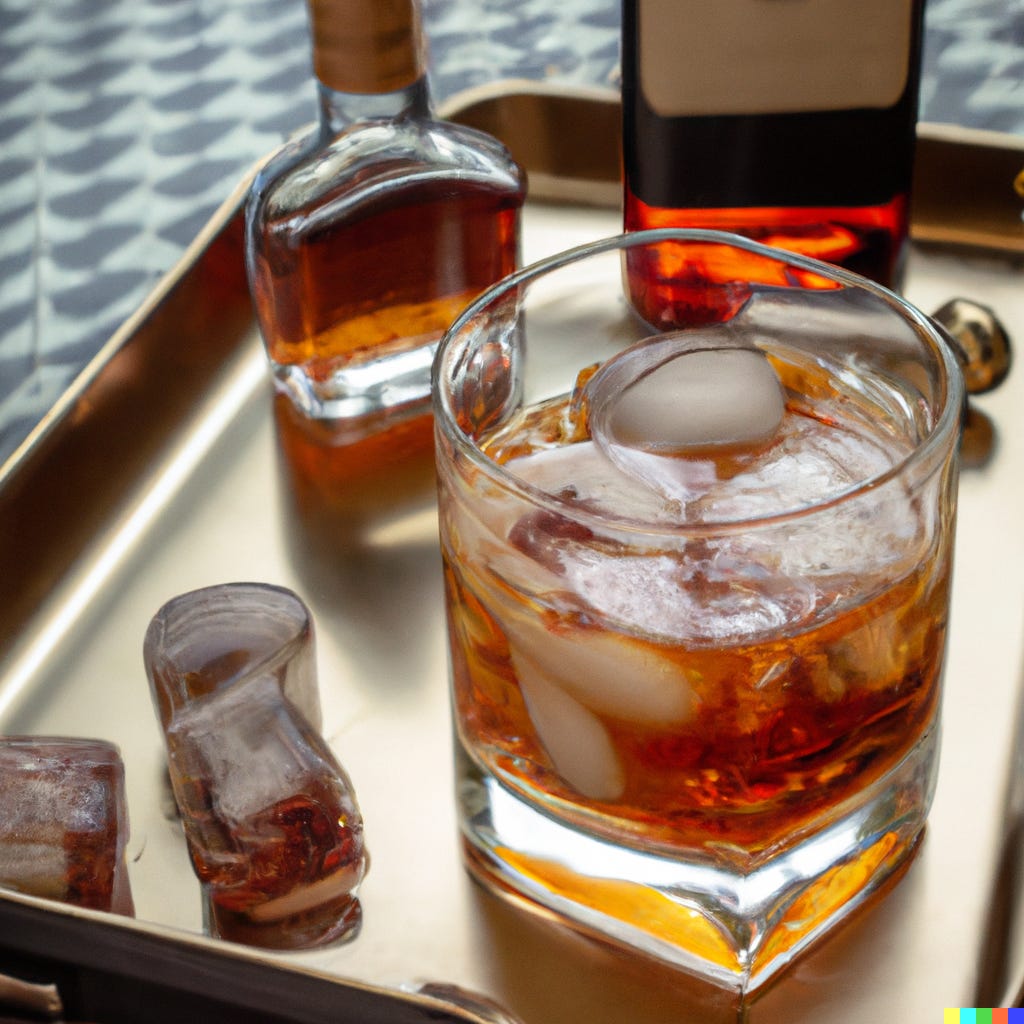
First, the Basics
But, not that basic. If a Google search gives you a great result, I don’t care that ChatGPT can replicate it. “How do I make a Negroni?” or “How much sugar do you put in an Old Fashioned?” are frequently-asked questions that your search engine of choice can quickly and efficiently answer. So let’s start with the next step of this problem: I know how to make a Negroni, but I don’t have any sweet vermouth on hand.
This is a good response - that would still be a tasty beverage but it would also taste different. It doesn’t provide any details on how it might be different, but still - good start. But what if I don’t have any vermouth at all?
This is…truly good. I’m a bit blown away by this one. I take a bit of an issue with describing Aperol as “similar to vermouth,” but fact remains that it would be a good sub. Lillet is a great recommendation, and, similar to Aperol, something you might be able to find with another Google search. But white wine sticks out here - that’s creative and interesting! I want to try it…
ChatGPT’s Dry and Spicy
I don’t like the name, but it’s the best option the tool provided and if you make the drink you get to name it - them’s the rules.
But even though I don’t like the name, I really do like the drink. I used an Oregon Pinot Gris that we often also use for cooking because it’s very dry and acidic. That character really works here, and the resulting cocktail is extremely dry but also very bright. If you have some open white wine around, you’d do worse than making one of these instead of just pouring a glass.
If you’re looking for a decent substitution for a drink you want to make, I can certainly recommend asking ChatGPT for advice.
Now For Something a Bit More Difficult
We’ve confirmed (in at least one case) that ChatGPT can recommend a solid substitution for a well-known cocktail, but how will it handle starting with less constraint? Let’s say you’re following my Cocktails of the Month and you now have a bottle of Benedictine in your home bar; what do you want to do with it? What would ChatGPT do?
These are good recommendations! I would recommend the Monte Carlo over the B&B (obviously), but still you can make any of these cocktails and likely enjoy the result. But is this really different than what you’d get with a Google search? The succinct context, description, and recipe all presented together is handy, but if all this does is save you a click or two I’m not sure it’s a tool worth using.
I’m more interested in the last line, and if I can get ChatGPT to engage in that experimentation.
ChatGPT’s Benedictine Sour
This is very simple, but it’s certainly not a recipe I’ve encountered before so it sure seems to fit the prompt. I like the idea - adding in Benedictine to a standard sour recipe and avoiding any protein addition should certainly highlight the herbs and spices in the liqueur. I worry a bit that it might be both a bit too sweet and too sour at this ratio, but let’s give it a go!
I’ve gotta admit - I was wrong. This cocktail is well-balanced, and while it’s quite sour it does a great job of highlighting the unique flavor of the liqueur. It’s a lot like any whiskey sour you’ve enjoyed with a bit more sugar and a lot more herb. I’ll make this again, but I’ll probably add some Peychaud’s here as well to help amplify the spice notes a bit.
Yes, AI Can Make You a Good Drink
Well, it can’t actually make it (yet), but it can give you directions to follow to a good result. Turns out this won’t just eventually put me out of a job, but out of a hobby too! It’s a fun and interesting tool, and I’ll certainly use it for myself and this newsletter going forward to help generate some creativity and test new ideas.



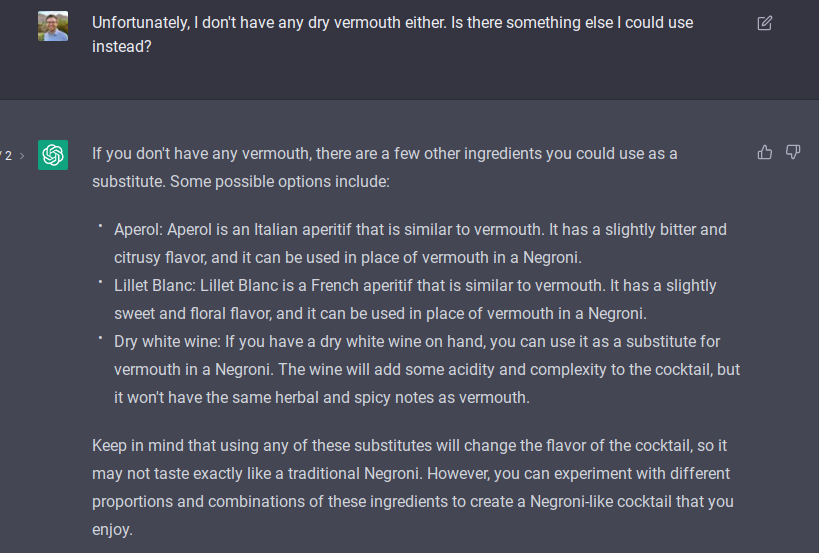
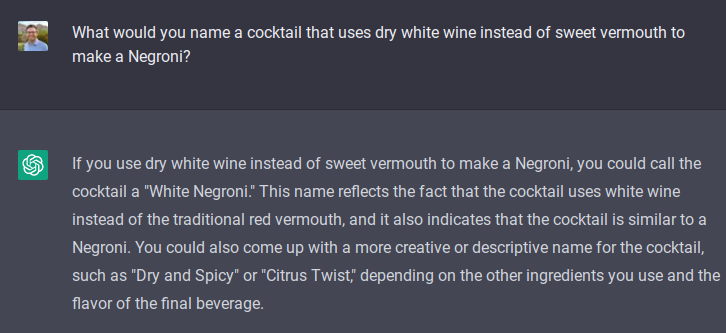
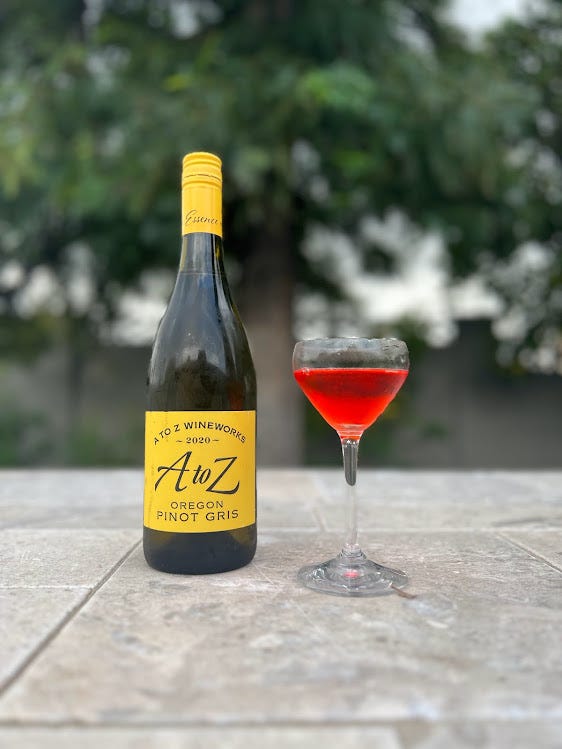
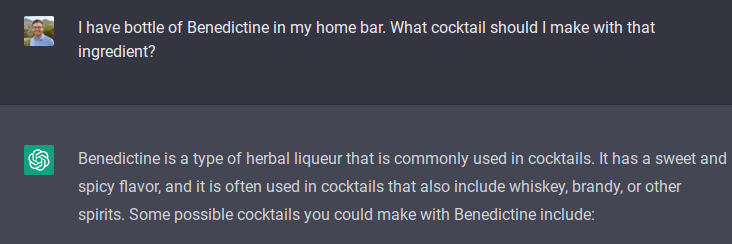
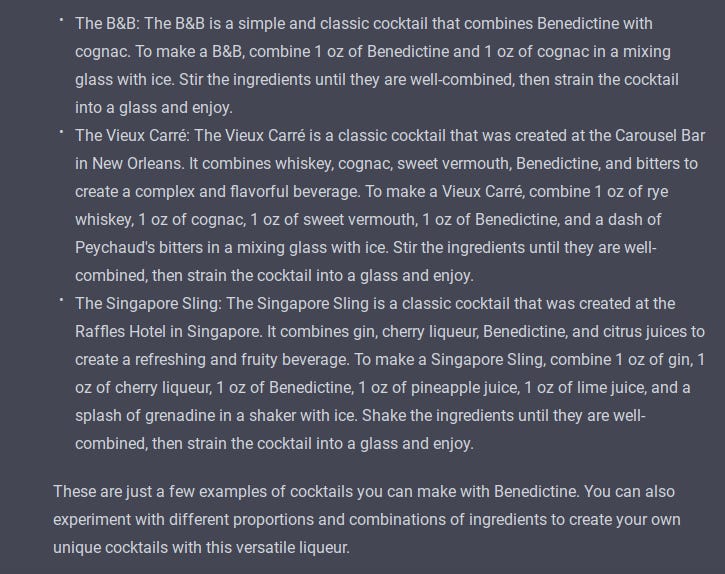

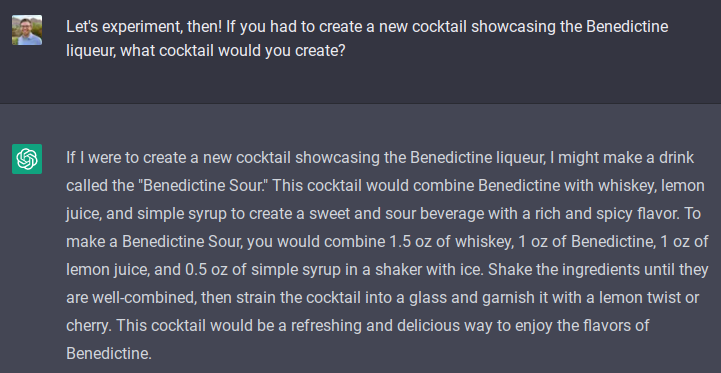
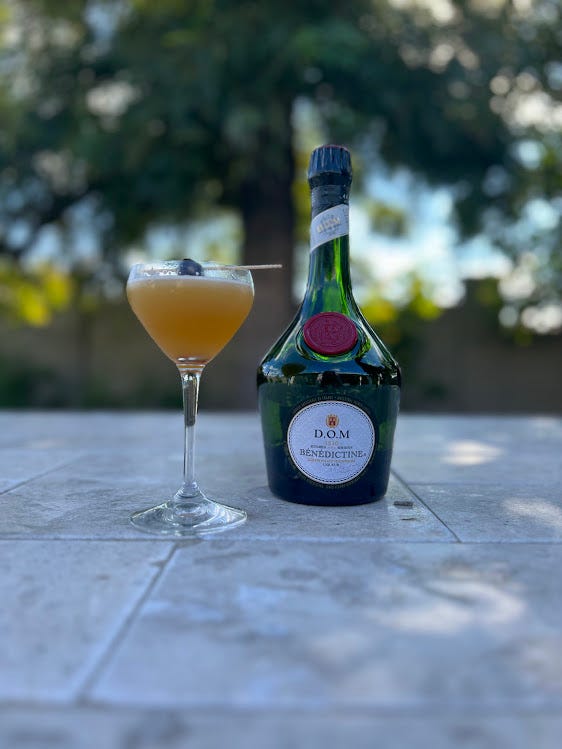

Does this mean I no longer need to answer the question "what do you want to drink tonight" and instead ChatGPT can answer?!